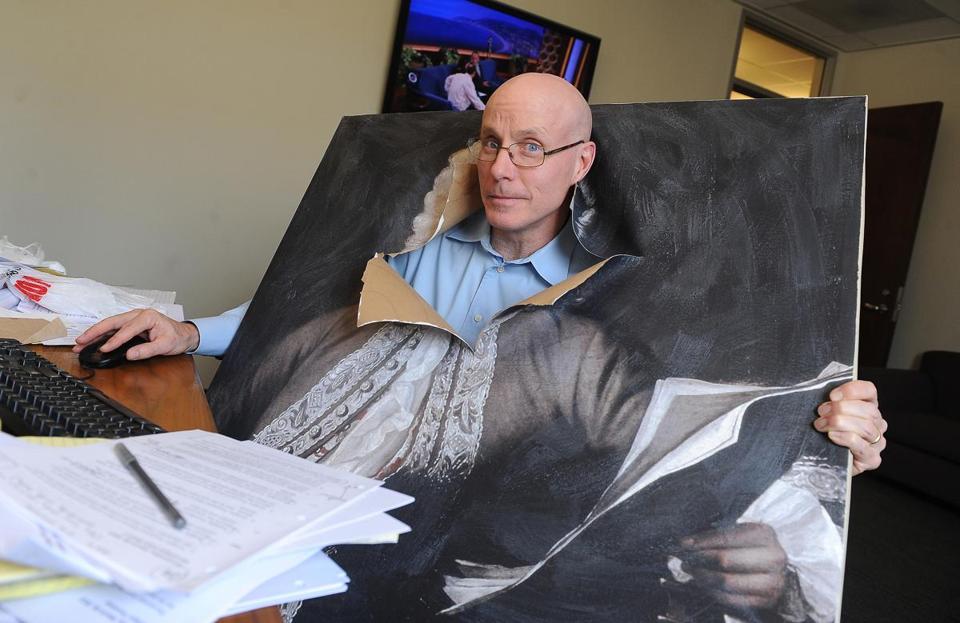CONAN WRITER WINS BIG AT NORFOLK'S COMEDY FESTIVAL
NORFOLK, NE (KTIV/US92) -At the Great American Comedy Festival Saturday night, the head writer for Conan O'Brien's monologues proved to Siouxlanders that he can be just as funny when he tells his jokes himself.
Brian Kiley is the head monologue writer for Conan O'Brien's nightly cable TV show, and Saturday he was named the winner of the 7th Annual Great American Comedy Festival's professional stand-up competition. Kiley can now add that trophy to a long list of professional accomplishments, including his 16 Emmy nominations.
Michael Sommerville finished second in the voting, while Joe Zimmerman and Mark Pitta tied for 3rd. Kiley will now be invited back to the Festival next June to host the Thursday and Friday night shows.
The three-person judging panel was made up of owners and operators of comedy clubs in L.A., Florida, and Chicago.
Posted: Jun 16, 2014 5:30 AM PDT
Brian Kiley is the head monologue writer for Conan O'Brien's nightly cable TV show, and Saturday he was named the winner of the 7th Annual Great American Comedy Festival's professional stand-up competition. Kiley can now add that trophy to a long list of professional accomplishments, including his 16 Emmy nominations.
Michael Sommerville finished second in the voting, while Joe Zimmerman and Mark Pitta tied for 3rd. Kiley will now be invited back to the Festival next June to host the Thursday and Friday night shows.
The three-person judging panel was made up of owners and operators of comedy clubs in L.A., Florida, and Chicago.
Posted: Jun 16, 2014 5:30 AM PDT
By Nick A. Zaino III| GLOBE CORRESPONDENT MARCH 09, 2013
FOLLOWING TURMOIL, 'CONAN' WRITER KILEY FINDS PEACE AT TBS
PHOTO: RICHARD HARTOG FOR THE BOSTON GLOBE
|
BURBANK, Calif. — The sun is just starting to set on the Warner Brothers lot as Newton native Brian Kiley walks to the studio gate. The Tuesday episode of “Conan” has just taped, and his job as a monologue writer is mostly done for the day, save for a wrap-up meeting. He is proudly wearing a red “New England” sweat shirt, and he exchanges pleasantries with another “Conan” employee wearing a Bruins sweat shirt. Despite the bustle of the past hour and a half, he feels serene and reflective.
Kiley, who started his comedy career doing stand-up while attending Boston College in 1982, has worked for every iteration of Conan O’Brien’s shows, starting with “Late Night” in 1994 and through the troubled tenure of “The Tonight Show.” O’Brien’s current profile with TBS isn’t quite as high as it once was, but after the turmoil of the previous show, “Conan” is an oasis for Kiley. “I’ve never left work angry,” he says. “I come in every day and I get to hear Conan and Andy [Richter] riff with the writers before the show, and it’s the best part of my day.” Kiley loves his job, and what happens on and off camera at “Conan” reflects why. Before the show that television audiences get to see, Jimmy Vivino and the Basic Cable Band make enough joyful noise to fill a stadium, with trombone player Richie “LaBamba” Rosenberg and Mark “Love Man” Pender heading out to the seats to sing and solo. During the show that night, guest Bill Maher addresses a lawsuit Donald Trump has brought against him over a joke he made on his HBO show “Real Time,” a joke Trump insists amounts to a contract, and thus a binding agreement. “In the world of late-night comedy, there are no binding agreements,” says Maher. He then turns to address O’Brien. “You of all people should know this.” A reference to O’Brien’s own “Tonight Show” contract squabbles, it’s a joke, but it has bite. O’Brien shrugs and laughs it off. Sidekick Richter chimes in, saying it took a minute for him to understand the reference. “This is healthy,” he says. “We’re moving on.” Kiley, too, has left that history behind him, but it was just a few years ago he had a backstage view of a media firestorm. To work on “The Tonight Show,” Kiley moved from the village of Irvington in suburban New York to the more urban Studio City in LA in March 2009. His wife, son, and daughter would join him that summer. Less than a year before, Kiley was part of the television writers’ strike, which left him playing every stand-up gig he could grab for four months while his main source of income was cut off. LA was a sea change. “It’s definitely a strange place,” he says. “There’s this thing where you see this blonde woman with skinny jeans walking a little dog, and she turns around and she’s 80 years old. And it’s so jarring to your senses. Things like that happen all the time.” Compared to the looser atmosphere of “Late Night With Conan O’Brien,” “The Tonight Show” was a grind for Kiley. The monologue was longer, and there was more pressure to produce. On a good working day at “Late Night,” Kiley would have time to call his dad or take a minute to breathe. At “The Tonight Show,” he found himself sitting at his desk and working through lunch. |
“There was a lot of scrutiny, and it was the kind of thing where, with him doing a very long monologue every day, personally, I can only come up with so many good jokes a day,” he says. “Because he was doing so many, even if you had your best day, I still feel like I came up short every day. It was a hole that couldn’t really be filled.”
The friction between O’Brien and Leno was front-page news, dubbed “The War for Late Night” by New York Times reporter Bill Carter. Kiley remembers hearing strangers talk about it in line for coffee or at his son’s ballgame. O’Brien lasted a little under eight months on “The Tonight Show” before NBC announced the controversial decision in January 2010 to bring Leno back into the slot. After 16 years with O’Brien, Kiley was jobless. “When the news first hit Jan. 7, I was shocked and I didn’t really have any kind of reaction,” says Kiley. “Then a week later it was my wife’s birthday and we were out to dinner with this other couple and they started talking about the whole thing and I suddenly realized, ‘Uh-oh, I’m out of work, and my wife left her job and we all moved here.’ And I just was hit with this wave of depression and fear, and I don’t think I said anything for an hour and a half during dinner.” When TBS announced that it had landed O’Brien in April 2010, Kiley was on a plane back to Boston for his aunt’s funeral. When he landed, his phone lit up with the news. He had a job again, and a lot more flexibility. “We can kind of do what we want because we’re creating the show without any kind of a legacy,” he says. The show doesn’t shoot on Fridays, which gives the writers a chance to get ahead for the next week. Kiley says the working situation is more fun, and he is better able to enjoy the best part of his job, giving O’Brien and Richter material that lets them riff. “I think a lot of the appeal of the show is, people like hanging out with these two guys,” he says. “It’s almost like you’re sitting [at] the lunch table in high school with these two funny guys. And if there’s a premise that they can play with after the joke, that’s kind of what we’re looking for.” The show shoots on the Warner Brothers lot in Burbank, surrounded by shows like “The Mentalist” and “Two and a Half Men.” It’s not far from the soundstage at Universal Studios that housed “The Tonight Show,” but it is worlds away from the pressure. “It’s actually much more fun on this lot,” he says. Kiley and his family have settled into the strangeness of Los Angeles, and left the difficult times that brought them there behind. “It was like a messy divorce,” he says. “Once you get through a messy divorce and you’re past that and you’re with a more attractive second wife, then you feel much better.” Nick A. Zaino III can be reached at nick@nickzaino.com
| ||||||


